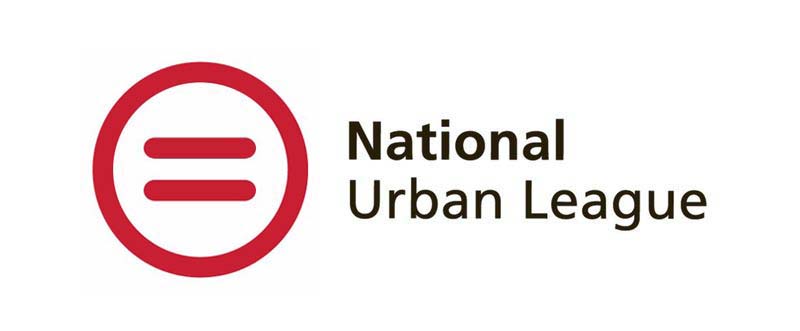I’ve been told I fit a lot of the stereotypes of Gen Z in the workplace. I love my work-life balance and enjoy completely logging off when I finish my daily tasks. Like many other Gen Zers, I don’t value my job over other aspects of my personal life. I want salary transparency from companies and openly talk about salaries with my friends — and how they should negotiate theirs.
As a Gen Z writer who writes about Gen Z in the workplace, it’s disorienting to watch companies try to figure out what “our deal” is. The boring truth is that we’re just like every other generation. We’re entering the workforce with new ideals shaped by the world we grew up in. Like every generation before us, we have new ideas about work, values, and what we want to see from companies. And if you ask us, we’re more than happy to share our thoughts.
>>MORE: Generation Z Workplace Statistics
In some ways, Gen Z in the workplace might be a little more defiant and challenging than previous generations, but I think for good reason — as a whole, our generation seems to fight for just, diverse, transparent workplaces where companies are held accountable.
If you’re trying to decode Gen Z in the workplace, here’s what you need to know, according to real Gen Zers.
It’s Always Personal Over Professional
Gen Z in the workplace is leading the charge when it comes to decentralizing work from life. This doesn’t mean we don’t care or don’t want to work (more on that in the next section), but rather a restructuring of priorities: work doesn’t come before our personal life.
According to Deloitte, less than half (49%) of Gen Zers say work is central to their identity. Instead, Gen Zers admire people with good work-life balance more than other traits like a person’s passion for the work, job title, or level of seniority.
>>MORE: ‘What Is My Passion?’ Quiz: A No-Stress Way to Learn What to Do in Life
“Understand that personal life takes priority over everything,” says David Nunez, a Gen Zer who started his first professional role at a branding agency, Grove Brands, in 2023. “This is something my generation wants other generations to follow as well.”
Helping establish that work-life balance goes both ways. For employers, this means managing workloads, communication boundaries, and schedules. It also means setting a good example — as Nunez says, a good work-life balance isn’t just for Gen Zers to enjoy! For Gen Zers, achieving a good work-life balance means meeting expectations within working hours, communicating and keeping boundaries, and respecting coworkers’ work-life boundaries.
Yes, We Do Want to Work
“One misconception about Gen Z that I want to set straight is that Gen Z has no work ethic or doesn’t want to work,” Anna Tomka, Gen Z public relations specialist at Forage, says. “Personally, I’ve worked multiple jobs at once, and I’m willing to push myself if it means growing as a professional. I know many of my peers have too. Many of us are driven to reach personal and professional goals and will go the extra mile to get there.”
Nearly 40% of Gen Zers work both a job and a side hustle, according to EY. Gen Zers may work more because they want to get experience, build skills, and make money. Yet they might also be motivated by financial anxiety, concerns about layoffs, and an unfavorable job market.
“I have seen the hiring process, and most people in Gen Z are applying to jobs at ridiculous rates,” Nunez says. “It’s not that no one wants to work. It’s just that finding work post-pandemic is a challenge that no one prepared us for.”
Diversity Is More Than a Website Statement
Gen Z is the most ethnically and racially diverse generation yet; 61% of Gen Zers over 18 identify as non-Hispanic white, and 38% identify as people of color, according to NBC News. Beyond ethnicity and race, more than one in four Gen Zers identify as not straight, and 42% have a diagnosed mental health condition. These statistics shed light that Gen Z is a diverse generation in various ways, and they’re not just expecting employers to work toward diversity and inclusion but to reflect diversity, too.
An employer’s commitment to diversity and inclusion is a significant factor in the Gen Z job search; according to Monster, 83% of Gen Zers say a company’s commitment to DEI is important to them when choosing an employer. This isn’t just because of Gen Z’s values about diversity and inclusion, but a reflection of their own experiences. According to the National Society of High School Scholars (NSHSS), one in five Gen Zers say their experiences with inequality and discrimination have affected their career choices.
Gen Zers want the company they’re applying for to physically reflect diversity, too. According to Tallo, 69% of Gen Zers are more likely to apply to jobs where recruitment materials and the actual recruiters themselves reflect an ethnically and racially diverse workforce. Shared identity matters, too; over half of Gen Zers from the same survey said they’d be more likely to apply to a role if the recruiter shared their ethnic or racial identity.
Employers can walk the walk by putting diversity and inclusion practices not just on their website but also in every aspect a Gen Zer might look at — their social media, recruitment materials, and other promotional materials. As a member of Gen Z in the workplace, it’s always a red flag when an employer boasts of diversity and inclusion practices on one page of their website, but the page with their leadership team has no diversity at all.
>>MORE: How Can You Tell if an Employer Values Diversity and Inclusion in the Workplace?
Benefits Matter to Us — But Not Just Office Snacks
There’s more to a job offer than just the title and pay. Gen Z in the workplace cares about benefits, and wants companies to put their money where it truly matters: fewer pizza parties, more mental health days.
According to a survey by PeopleKeep, more than nine in ten (91%) of Gen Zers in the workplace say that paid time off is important or extremely important to them as a benefit, ranked higher than any other benefit listed. Eighty-nine percent said the same about flexible work schedules. Retirement benefits, professional development, and mental health benefits rounded out the top five.
“I am incredibly fortunate to be working in a company that puts employee’s happiness as a priority,” Nunez says. “We have dental insurance, health insurance, and even life insurance. We also work hybrid across the week and are all constantly working with each other across departments to help get work done. Recognize the valuable work that your employees give by providing things such as insurance, paid time off, and retirement opportunities.”
Many of Us Can’t Afford to Accept Lower Pay
Cries about salary from Gen Z in the workplace aren’t for show — they’re true call-outs for companies to start paying people what they deserve.
“Look into how much employees need to make a livable wage,” Nunez says. “So many people in Gen Z still live with their parents and are critiqued for it, but don’t have anywhere they can afford to live.”
For example, the living wage in New York City for an adult with no children is $69,284, yet many companies in the city offer entry-level starting salaries below $50,000. This forces Gen Zers to take multiple jobs, miss out on savings, or continue to live at home to afford to take these roles — or, it perpetuates the culture that only Gen Zers with family support and money can afford to take these roles.
Employers can promote salary transparency by including salary ranges within their job descriptions. This can be an effective recruitment tactic, too — more than 65% of Gen Zers say “salary ranges in job postings” is their biggest motivator when they apply for a role.
We Want Companies to Actually Care
Gen Z in the workplace is all about values. On the job search, Gen Zers are looking for companies that reflect their values; once hired, Gen Z isn’t afraid to push their employer to fight for the values they believe in. These values include social justice, mental health, climate change, diversity, equity, and inclusion.
On the job search, 39% of Gen Zers say they’ve turned down employers who don’t align with their values, according to Deloitte. Once at a company, 44% of Gen Zers say they’ve turned down assignments due to ethical concerns.
Both professional roles I’ve held have been at companies where there’s a broader social mission. Many of my Gen Z peers relate. When we were looking at roles, applying to companies and trying to make a difference was motivating and exciting. I like working somewhere where I know we’re trying to have a positive impact at the end of the day.
We Don’t Rely on Tech; We Want to Connect Through It
“One misconception I’d like to set straight derives from the fact that many people believe Gen Z workers rely too heavily on technology and, in turn, lack interpersonal skills,” says Luke Lintz, a Gen Z entrepreneur and CEO of HighKey. This overlooks our ability to leverage technology for good, like efficiency, connectivity, and innovation. My personal experience (at HighKey) shows that our tech-savviness purely complements traditional skills and enhances our work and communication.”
I won’t pretend to hide it: entering the workforce remotely definitely affected my ability to connect with and socialize with my coworkers initially. Yet this doesn’t mean (at least I hope!) that I still choose to hide behind a screen. While I may not prefer face-to-face work as much as other generations, a lot of connection can happen through technology in remote and hybrid environments.
“Promoting diverse communication platforms is key,” Lintz says. “Using a mix of traditional emails and modern tools like Slack or Zoom can bridge gaps with other generations, ensuring clarity and inclusiveness. Another tactic that can help bridge these gaps is regular feedback sessions. Implementing open, bi-weekly feedback exchanges, overall communication, and understanding of diverse work styles can enhance team cohesion. These approaches have maximized our productivity at HighKey and fostered a culture of respect, understanding, and continuous improvement, crucial for navigating the dynamic landscape of modern business.”
We Want to Grow
Many employers worry Gen Z in the workplace is a flight risk, but the right opportunities within their current roles can make them stay.
Gen Z in the workplace has a reputation for being “job hoppers” for good reason; according to Resume Lab, 83% of Gen Zers say they consider themselves job hoppers. Only about one in ten Gen Zers say they intend to stay at their current employer for four or more years.
Yet Gen Z doesn’t job hop out of boredom or for the sake of leaving. According to LinkedIn, Gen Zers are most likely to go to another job if it better aligns with their interests or values or if there are more opportunities to learn and practice skills or expertise.
Employers can help retain Gen Z employees by providing mentorship and learning opportunities to help Gen Z upskill in their current roles. Companies can get feedback from Gen Z employees to figure out what kinds of skills they’d like to learn so they can meet them where they are.
“Add continuous learning opportunities to encourage skill development in areas like digital marketing and technology — realms which reflect our value for growth and adaptability,” Lintz says.
Things You Need to Know About Gen Z in the Workplace: The Bottom Line
Gen Z in the workplace is infamous for challenging norms and traditions, but that change doesn’t have to be a bad thing. Many of the things we’re fighting for as a generation can impact everyone positively at work — like better work-life balance, salary transparency, and mission-oriented companies.
While I’ll admit we can be stubborn about our values, we want to work with people of all generations to help secure those values and make a difference. Meeting us halfway can go a long way toward creating a better workplace for everyone — regardless of age.
Image credit: Canva


